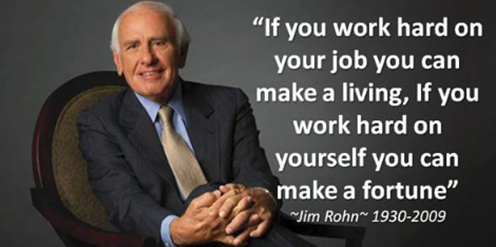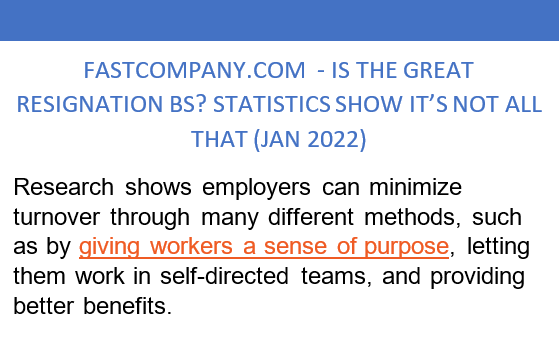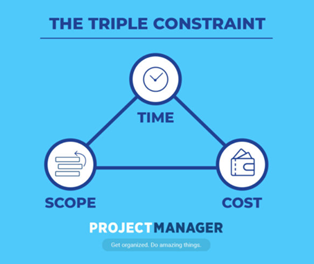Developing a PMBOK Inspired Career Plan
Running Projects is Like Raising Kids – They Need Your Full Attention
So, we project managers move heaven and earth, ensuring project success happens.
By nature, we are happiest when projects are on track and green.
And as a fellow project manager, I know this work can be challenging with:
- Constant organizational changes
- Budget cuts fear or reality
- Project team turnover
- PMO demands for data or compliance
- Seemingly aloof decision-makers (not purposely, just busy with their day jobs)
- Technology issues
And, “We’re going Agile – eventually.”
So, you apply Agile tools and techniques for a lift on your waterfall project to manage current and future states of work.
Often, we work so hard on our jobs that we neglect our personal and professional selves.
The Best Time to Be a Project/Product Manager is NOW!
Let’s focus on ourselves and our careers for a moment.
Because our work is transformative and impactful, the demand for project managers is through the roof with no signs of stopping (Ex. Salaries, Challenges, Growth Opportunities, etc. – all rising).
FACT: PMI estimated project-oriented work may top $20 trillion by 2027 and put 88 million people to work (HBR.org Article Written by Antonio Nieto-Rodriguez)
However, it would help if you STILL asked yourself these critical questions about your work:
- Do I feel like the work gives me Purpose?
- Is this work fulfilling?
- Do you love problem-solving?
- Is organizing things in your DNA?
- Do you look forward to aligning people’s strengths to do great things?
- Are you excited to learn new technologies and concepts to get more out of your day?
Can you answer each question with an emphatic “Yes?”
If so, you are operating in or near your life’s big “Why” or Purpose.
Check out this video for more on finding your life’s big “Why.”
As project managers, the work we do should be an extension of our reason for existence, in service to others, at this moment in time.
If not, revisit your career path because there may be a far more lucrative and fulfilling path than project management.
Beyond Market Demand, Does Project Management Help You Fulfill Your Purpose?
Not sure?
STOP – Read John Coleman’s Article: To Find Meaning in Your Work, Change How You Think About It.
John’s article appeared on HBR.org, and it’s legit!
Here’s a key point John makes that will help you frame up your WHY:
Remember why you work. Please identify the person or group of people in your personal [and professional] life that your work is in service for, and keep them in mind when you work through even the most tedious of tasks. A purpose isn’t magic — it’s something we must consciously pursue and create. With the right approach, almost any job can be meaningful.
Yes – You CAN find Purpose in any work, but it does not guarantee fulfillment.
CAVEAT: However, the most fulfilling work emerges from a clear sense of service that transcends self and targets impacts for you and those you serve with what you do best.
Bonus: the most fulfilled, financially free, and divine aligned beings on the planet figure out their “Why” and then strike out to touch the sky!
Is Project Management an extension of your why?
Well, it should be!
Is Project Management Your Jam?
If you are still reading, you must love what you do, so here’s a question for you:
How would your career change if you applied Project Management rigor to transform your career?
Listen, Jim Rohn – motivational speaker and businessman, once said:

Do You Have a Job Or A Career?
Working on yourself means your life purpose gets integrated with your career.

A purposed career takes reflection, decision-making, and work creation that ensures work is more fun and lucrative than you could imagine.
Now ask yourself: Do you work harder on your job than you do on your career?
Wait – What’s the difference between a job and a career?
Simple: Careers are fulfilling because they work on you. Jobs are not fulfilling because you work on them.
You’ve heard of the great resignation.
The great resignation is partly fueled by retirement.
And, many post-pandemic workers slowed down long enough and realized their life and life’s Purpose was more doable with a flexible, remote environment where their best and most fulfilling work could be done.
And an unfulfilling job is like getting a root canal without anesthesia – it hurts too much and should never be done.
You need work that fills your heart, wallet, and purpose-driven needs for being alive at this point in time.
Advertisement
[widget id=”custom_html-68″]
Take a Page Out of PMBOK (Career Style)
Remember, we use PMBOK to transform our work.
Why not use the same rigor to transform our careers, too?
Let’s discuss the triple constraints as they apply to your career’s development.
You will focus on developing your first career phase, which takes approximately 6 – 12 months.
After that, you will revisit your plans, reassess them, and schedule another 6-12 month sprint until you reach career nirvana or something close to it.
Triple Constraints Blended with Project Phases

As with any project, the goal is to add value.
Your career project is no different. Your career project is about adding fulfillment and value-adding capability to your career.
Let’s start with your scope, which breathes life into your life’s big “Why” with “What and How.”
INITIATE AND PLAN
Scope: Start with a career project charter and plan to initiate/solidify your career project:
First, suspend all logic and hold nothing back, so you won’t get in the way of getting what you deserve!
- BUSINESS CASE/OBJECTIVES:
- What project work, people, places, and things give you the greatest fulfillment?
- What would doing this work look like each day?
- What short- and long-term benefits could you realize if bullets 1 and 2 came true?
- Please be detailed with your descriptions.
- Finally, write a DESIRED STATE narrative summing up bullets 1-3 or create bullet points using the same rigor and diligence you give at work.
- CONSTRAINTS: How does your CURRENT STATE differ from your DESIRED STATE?
- Make a few notes about the key differences, then burn them! Acknowledging the old will help you move forward toward the new. Its history and focusing on it will keep you stuck.
- RISKS: What things must change about YOU AND THE WORK YOU DO to achieve YOUR DESIRED STATE career?
- What must you change personally and professionally to reach your DESIRED STATE career?
- Create bullet points using the same rigor and diligence you give at work.
- STAKEHOLDER ANALYSIS: What stakeholders must you assemble to gain clarity on your best way forward?
- List your stakeholders, the input you seek, and the input you receive. These stakeholders can be just about anyone you trust, like a:
- Career coach
- Mentor (video)
- Someone further along in the career journey than you
- A trusted advisor and Truth Teller
- Spiritual wisdom from your Source
- List your stakeholders, the input you seek, and the input you receive. These stakeholders can be just about anyone you trust, like a:
EXECUTE, MONITOR, AND CONTROL
Time: Develop your career project plan and time box your steps:
- What three steps or tasks must you first execute, monitor, and control, to deliver on your 6 to 12-month career development project:
- Think Start, Stop, and Continuing certain behaviors related to:
- Professional Development (Ex. Continuous Learning)
- Personal Development (Ex. Mindset Management)
- Networking (Ex. Real relationships with other doers – not just LinkedIn connections, meaningful conversations with people behind, beside, or ahead of you in their career journey).
- Distill your “Start, Stop, and Continue” into tangible steps:
- Take a certification or online/live training course
- Do volunteer work for experience
- Watch personal development videos, so you are not the barrier to your success
- Add some details and time boxes.
- Think Start, Stop, and Continuing certain behaviors related to:
Remember, the three steps or big things you must do will encompass no less than six months but no greater than 12 months.
As the phrase goes, “You must count the cost.”
Cost: Pencils down. It is time to revisit your scope activities and consider what it will cost you to deliver on this 6 to 12-month career project.
For example:
- Have you determined how you fund your personal or professional development where needed?
- Are you fully committed to making this project move forward regardless of the obstacles?
- Have you accurately estimated how much time and effort you will expend each month reaching project completion?
- How will you socialize your plan, gain support, and keep your career project on track?
- Have you considered most likely project disruptions and accounted for contingencies to them?
You are compelled and equipped to navigate this massive career lift and shift ahead if you do your homework.
Fast forward.
You’ve successfully counted the cost and dove into your career project.
And you remain on track to complete your three initial steps.
You must properly close out those steps that transitioned from DOING to DONE.
CLOSEOUT
After completing all three steps, you ensure they delivered on your expectations or receive sufficient evidence to do something different next time.
Here are a few examples:
- Did steps add work/life fulfillment? If not, what should have happened or been done differently?
- Did steps add value? If not, what should have happened or been done differently?
- What were your personal and professional lessons learned?
- In what ways did the project grow you personally and professionally? If not, what should have happened or been done differently?
- Did you connect and benefit/serve someone behind, beside, or ahead of you on the same/similar career journey? If not, what should have happened or been done differently?
If everything went according to plan, you close out your final step before moving on to the next step(s) in your 6 – 12 month career project.
Conclusion
Remember, project management isn’t for everyone, no matter how well you do the work. The work must be fulfilling, tie into your big “Why,” and help you thrive, not just survive!
After noodling your big “Why” and choosing a project management career desired state or path to begin leveraging the Career “Triple Constraints” concepts, develop your unique journey, and decidedly fulfilling career path.
Call to Action
The world needs us – get equipped for a world of projects producing exponential value! Finally, Global demand for Agile/Scrum/Product Management expertise is heating up for PMs with this experience and may be the key to you prospering in the new remote economy.
It’s only a matter of time before it intersects with your work or influences your opportunities.
About PMI Central Illinois Chapter
Visit PMI Central Illinois Chapter to Learn More. And check out a few more articles by other PMI CIC contributors.
